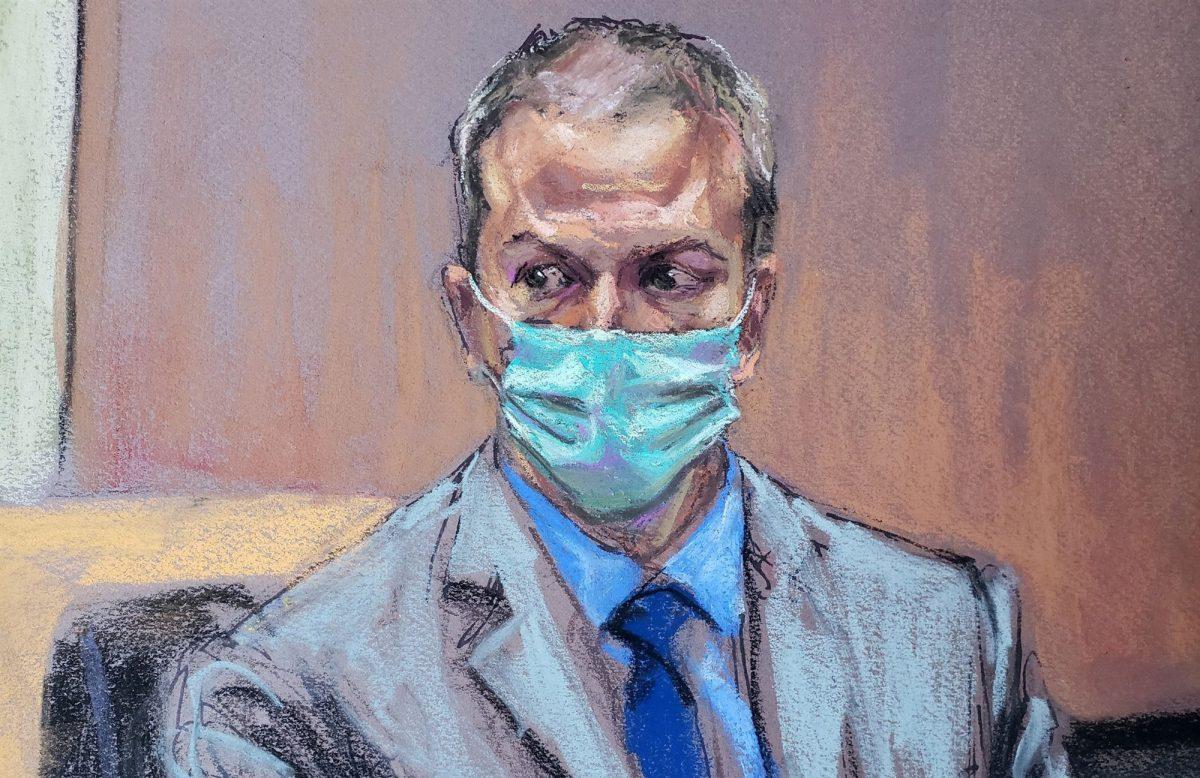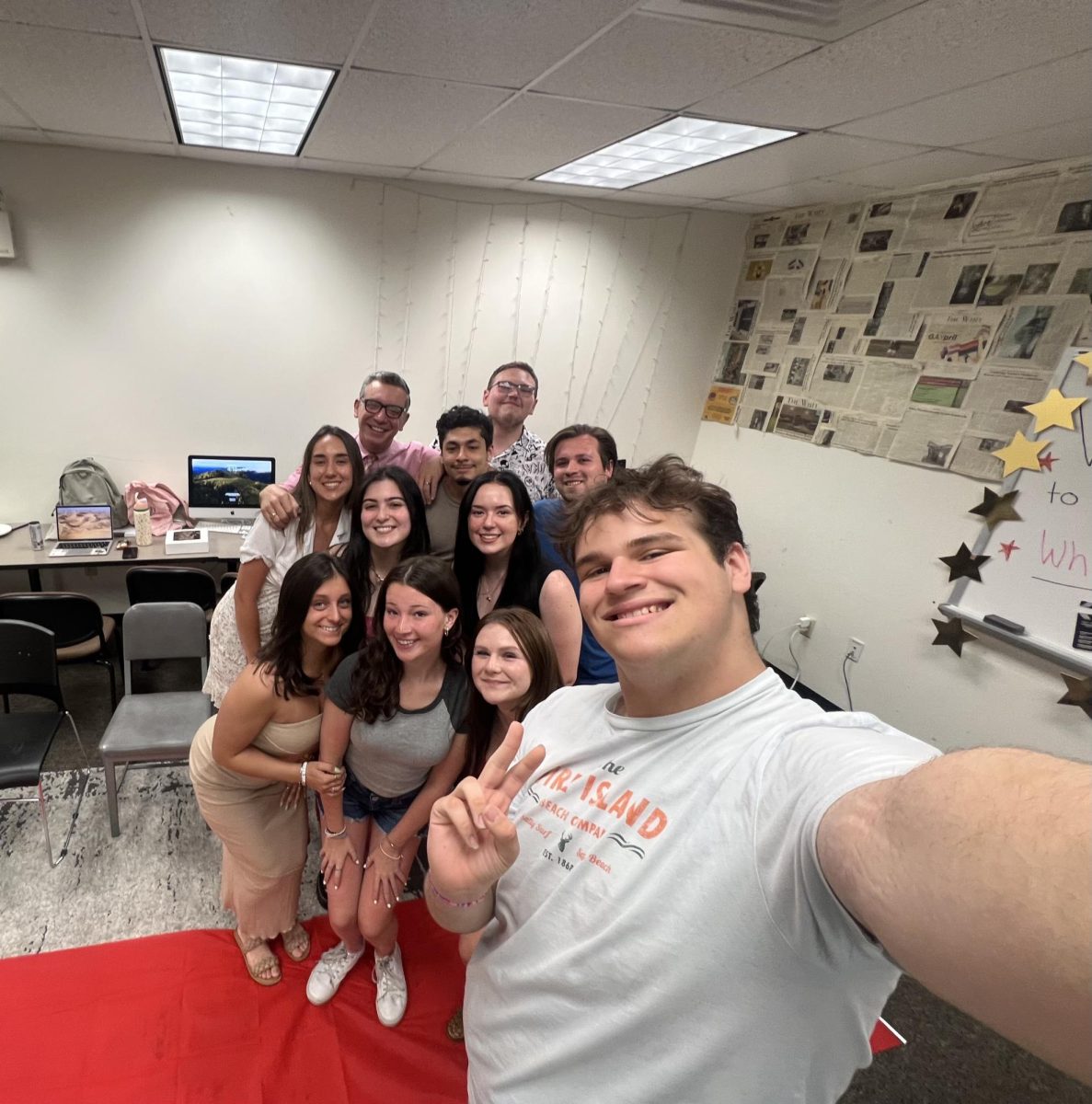From the author: This opinion piece is by Daniel Tepper, a politically right-leaning student at Rowan who has been accused of being racist for his views.
The Chauvin trial is one of the most notable events in recent American history and will be remembered. On April 20, the jury ruled Chauvin was guilty of second degree murder while committing a felony, third degree murder and second degree manslaughter. Most Republicans including myself recognize that the jurors who listened to days of testimony, the people that testified and the judges present all know more about the case than a vast majority of Americans, including us, who merely heard about the highlights of the trial from the news and social media. We support that full legal process.
However, statements from Congresswoman Maxine Waters and countless others could have threatened the jurors, and a jury making a decision under death threats and mob rule is not the definition of due process, as outlined in the United States Constitution. As of April 21, the case may be appealed if Chauvin and his lawyers believe his due process was violated. This decision is theirs, not ours, and I respect their decision to appeal or not.
It also must be recognized that this event is not what it is made out to be by most of the U.S. media and politicians. Chauvin was not charged with a hate crime. There never was, and still is not, any evidence that Floyd died because he was Black. Chauvin was reckless, not racist. Even if Chauvin was racist, that would not mean all cops, all white people, all Republicans, etc. are racist. The associations made regarding this event are honestly disgusting, and the trial verdict does not change this. It was not Donald Trump’s or any his supporters’ knees on Floyd, or the knee of any cop other than Derek Chauvin. Blaming them for this tragedy is grossly inaccurate. Similarly, it is grossly inaccurate to blame all Muslims for the 9/11 attacks on the Twin Towers.
The same tragedies do happen to Americans of all color, but if it is not a Black person many news networks and politicians do not care. Look at the case of Tony Timpa, a white man, for example. There are many striking parallels. Timpa was high on cocaine, had serious mental health disorders (comparable to Floyd’s drug use), had the officers knee on his neck for 14 minutes, resisted arrest and repeatedly said “you’re gonna kill me.” Then Timpa died.
Further, the narrative that most left-leaning media and politicians want to push that Black people are hunted down by police is statistically false. Regardless of race, every American has a statistically much higher chance of getting struck by lightning than being shot by police while unarmed. During the first eight months of 2016 in Chicago, 2,818 people were shot, yet only 12 by police. If people are terrified about being shot by police, who fatally shoot about 1,093 people per year, they ought to be terrified of medical errors (which account for 250,000 deaths annually), unintentional poisonings (which account for 66,000 deaths annually) and car crashes (which account for 37,600 deaths annually). Among the 1,093 people fatally shot by police, a vast majority were armed and/or resisting arrest.
From 2014 to 2019, according to Bureau of Justice data, 6,560 people have been killed by police. Among them, 1,654 Blacks were killed. This is an average of 275 per year. Whites accounted for 2,953 police-involved deaths, an average of 492 per year, from 2014-2019.
White people make up about 65% of the population and Blacks about 12.3%, which does prove Blacks are disproportionately victims of police violence. However, police do not regularly interact with members of the population who are not engaging in crimes. According to Cesario and Johnson, who analyzed crime data from more than 200 U.S. counties, the strongest predictor of being shot by the police isn’t a person’s race, but whether the person is engaging in violent criminal behavior. The fact of the matter is Blacks account for 12.3% of the population, 25% of people killed by police, 27% of rapes, 52% of robberies and 51% of murders and nonnegligent manslaughter.
Believe me when I say that as Republicans, we hate these facts as much as anyone else. But in order to actually solve a problem, we must acknowledge it for what it is. The idea that police do not care about Black people is completely false, and blaming police racism rather than Black crime rates for the increased prevalence of Black deaths from police relative to population is never going to solve our problems. The solutions brought on in the wake up George Floyd’s death, such as defunding the police and reducing their presence, have failed time and time again. Even in Minneapolis where the Floyd incident happened, residents complained of slow response times and an increase in crime following the defunding of police. Defunding the police leads to more homicides and deaths of all people including Blacks.
This is why we need real solutions that solve the real problems. Crime is closely tied to poverty, and it is true that Blacks are more likely to be poor. Poverty and family culture is a predictor of crime, while race is not. There is nothing genetically different about different races making them more likely to be criminals. If we Republicans look at two people, one Black and one white, we will never assume the Black person is more likely to commit a crime. If one of the two people grew up going to church with their dad every week, while the second one never met their dad or their dad lived a life of crime, we will believe it is more likely for the second person to be a criminal than the other one, regardless of which person is which race. Crime is a predictor of being the victim of police violence. Race is not a predictor of crime.
Poverty, lack of a father, homelessness and growing up around crime are predictors of crime, so we propose solving them with policies that actually empower our inner city and crime ridden communities. These include increasing police funding and training to safely reduce crime, more money to inner city infrastructure regardless of the cities racial demographics and reduction in affirmative action by race but an increase in affirmative action by community and parental factors.
For comments/questions about this story, tweet @TheWhitOnline.

























































































































































!["Working with [Dr. Lynch] is always a learning experience for me. She is a treasure,” said Thomas. - Staff Writer / Kacie Scibilia](https://thewhitonline.com/wp-content/uploads/2025/04/choir-1-1200x694.jpg)










































